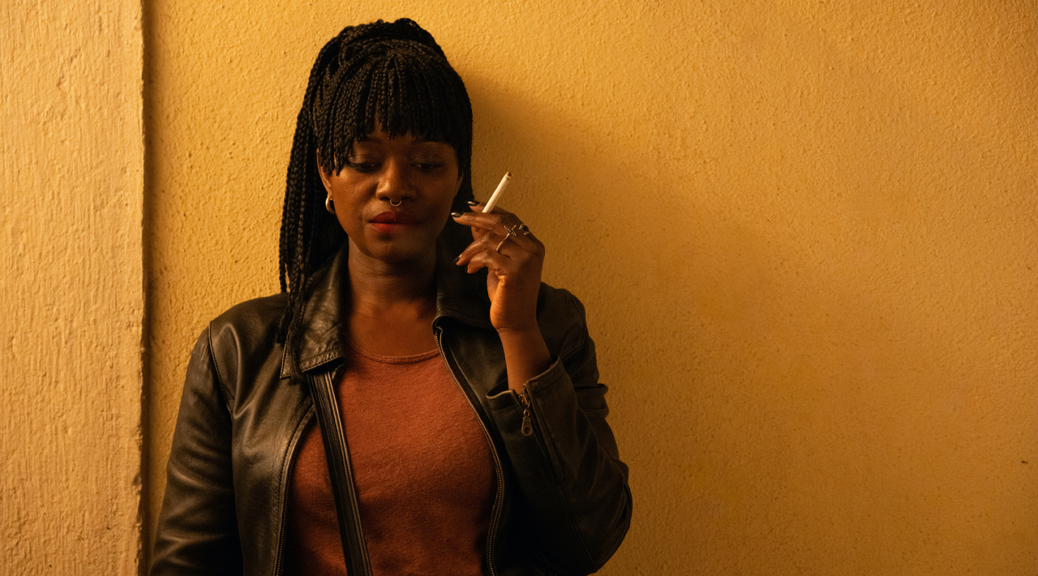Our Father, the Devil
by Matt Weiner
Much of contemporary horror and thrillers have found chilling but abstract ways to exorcise trauma. Ellie Foumbi’s feature debut Our Father, the Devil is a haunting and welcome twist on the formula, with its all-too-human demons and a direct confrontation of the horrors of the past.
Marie (Babetida Sadjo) enjoys her work as a chef for a retirement home in southern France. She treats the elderly residents humanely, to the extent that she is gifted a family cottage from the kindly Jeanne (Marine Amisse), a former chef who also happened to get Marie the job as her star pupil.
It’s a slow burn in the bucolic countryside until the arrival of Father Patrick (Souléymane Sy Savané). The mere sound of the priest’s voice causes Marie to panic, a feeling that is later confirmed during a taut exchange alone between the two that triggers a distinct memory for Marie.
This tension is broken with a fateful outburst from Marie, who knocks the priest out and ties him up at her new cabin. She suspects that Father Patrick is actually Sogo, a supposedly dead warlord who murdered Marie’s family in Guinea and abducted her into his army of child soldiers.
The rest of the film is a tense, unblinking interrogation of what this reality means for Marie and the life she has left behind. The escaped war criminal hiding in plain sight has been fodder for plenty of films and procedurals, but Foumbi’s humane script and deft direction quickly elevate the uncertainty from material to spiritual doubt.
The horror of what Marie—and perhaps Father Patrick—have witnessed and done to others points to a deep, existential rot. Foumbi does not shy away from the moral complexity of Marie’s pursuit of vengeance.
And while the “Is he / isn’t he” part of the suspense is cleared up surprisingly early, electric performances from Sadjo and Savané and their interplay together keep the tension at almost unbearable levels for most of the film. Foumbi’s script eschews condemnation and easy answers in equal measure, and it wouldn’t work without the nuanced turns from the leads. Our Father, the Devil throws up a lot of weighty questions around forgiveness and salvation. The film is less concerned with answering those questions, but then that’s also the point. Escaping a cycle of trauma and abuse is hard. But not as hard as forgiveness.

